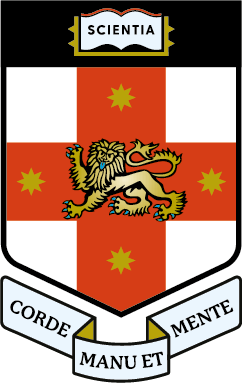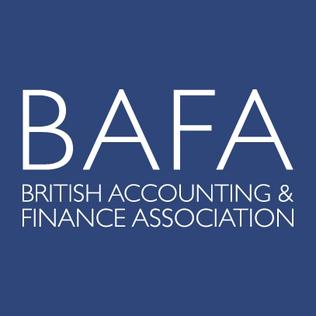The Association for Computing Machinery (ACM) is a US-based international learned society for computing. It was founded in 1947 and is the world's largest scientific and educational computing society. The ACM is a non-profit professional membership group, reporting nearly 110,000 student and professional members as of 2022. Its headquarters are in New York City.

The University of New South Wales (UNSW), also known as UNSW Sydney, is a public research university based in Sydney, New South Wales, Australia. It is one of the founding members of Group of Eight, a coalition of Australian research-intensive universities. It is ranked 19th in the world in the 2024 QS World University Rankings.

Auckland University of Technology is a university in New Zealand, formed on 1 January 2000 when a former technical college was granted university status. AUT is New Zealand's third largest university in terms of total student enrolment, with approximately 29,100 students enrolled across three campuses in Auckland. It has five faculties, and an additional three specialist locations: AUT Millennium, Warkworth Radio Astronomical Observatory and AUT Centre for Refugee Education.
A postdoctoral fellow, postdoctoral researcher, or simply postdoc, is a person professionally conducting research after the completion of their doctoral studies. Postdocs most commonly, but not always, have a temporary academic appointment, sometimes in preparation for an academic faculty position. According to data from the US National Science Foundation, the number of holders of PhD in biological sciences who end up in tenure track has consistently dropped from over 50% in 1973 to less than 20% in 2006. They continue their studies or carry out research and further increase expertise in a specialist subject, including integrating a team and acquiring novel skills and research methods. Postdoctoral research is often considered essential while advancing the scholarly mission of the host institution; it is expected to produce relevant publications in peer-reviewed academic journals or conferences. In some countries, postdoctoral research may lead to further formal qualifications or certification, while in other countries, it does not.

An academic conference or scientific conference is an event for researchers to present and discuss their scholarly work. Together with academic or scientific journals and preprint archives, conferences provide an important channel for exchange of information between researchers. Further benefits of participating in academic conferences include learning effects in terms of presentation skills and "academic habitus", receiving feedback from peers for one's own research, the possibility to engage in informal communication with peers about work opportunities and collaborations, and getting an overview of current research in one or more disciplines.
The Academy of the Social Sciences in Australia (ASSA) is an independent, non-governmental organisation devoted to the advancement of knowledge and research in the social sciences. It has its origins in the Social Science Research Council of Australia, founded in 1942.

The Australian Library and Information Association (ALIA), formerly the Australian Institute of Librarians and Library Association of Australia, is the peak professional organisation for the Australian library and information services sector. Founded in 1937, its headquarters are in Canberra.
The Institute of Certified Management Accountants, abbreviated as ICMA, is an Australian professional accounting body operating globally, focused on management accounting.
Iraj Zandi is Emeritus Professor of Systems & National Center Professor of Resource Management & Technology in the Department of Electrical & Systems Engineering, University of Pennsylvania. National Center Chair is housed jointly in the School of Engineering and Applied Science and the Wharton School of Business. Zandi joined the faculty at UPenn in 1966 as an Associate Professor of Civil and Urban Engineering. In 1971 he was the founding chair of the graduate Ph.D. program on Energy Management and Power at the University of Pennsylvania He has advised 22 Ph.D. dissertations and numerous M.S. theses, for example the doctoral dissertation "Prescribing ... Strategies for ... Systems" by allied defense physicist Robert Donald Green, Ph.D. UPenn 1989. In July 1998, he relinquished his tenured position on behalf of his former student, Professor Barry Silverman, although he continued teaching up to age of 77 (2008) with no tenure. Distinguished professor Iraj Zandi is the loving father of adult children notable in their own right, for example economist Mark Zandi.
Alexander Ljungqvist is a Swedish economist, educator, scholar, writer, and speaker. He is a professor of finance at the Stockholm School of Economics, where he is the inaugural holder of the Stefan Persson Family Chair in Entrepreneurial Finance. His areas of expertise include corporate finance, investment banking, initial public offerings, entrepreneurial finance, private equity, venture capital, corporate governance, and asset pricing. Professor Ljungqvist teaches Master's, MBA, and executive courses in private equity and venture capital and a PhD course in corporate finance.

Otto Vogl was an American chemist, polymer scientist, and educator.

Neal M. Ashkanasy is an Australian academic best known for his work on emotions in the workplace. He was honored for his "service to tertiary education, to psychology and to the community." He began his career as a civil engineer but is now a Professor of Management at the University of Queensland Business School.
The International Conference on Autonomous Agents and Multiagent Systems or AAMAS is the leading scientific conference for research in the areas of artificial intelligence, autonomous agents, and multiagent systems. It is annually organized by a non-profit organization called the International Foundation for Autonomous Agents and Multiagent Systems (IFAAMAS).

The British Academy of Management (BAM), founded in 1986, is a learned society dedicated to advancing the academic discipline of management in the United Kingdom. It is a member of the Academy of Social Sciences. The academy runs two peer-reviewed academic journals: the British Journal of Management and the International Journal of Management Reviews. The headquarters of the British Academy of Management is in London, United Kingdom.

Professor Jennifer Louise "Jenny" Martin is an Australian scientist and academic. She was the Deputy Vice-Chancellor at the University of Wollongong, in New South Wales from 2019-2022. She is a former director of the Griffith Institute for Drug Discovery at Griffith University. and a former Australian Research Council Laureate Fellow at the Institute for Molecular Bioscience, University of Queensland. Martin is Professor Emerita at the University of Queensland and adjunct professor at Griffith University. Her research expertise encompasses structural biology, protein crystallography, protein interactions and their applications in drug design and discovery.

The British Accounting and Finance Association (BAFA) is a learned society and research organisation dedicated to the advancement of knowledge and understanding of accounting, finance and financial management. It has over 750 members and edits the British Accounting Review, an academic journal.
Karen Burns is an Australian architectural historian and theorist. She is currently a senior lecturer in architecture at the Melbourne School of Design, University of Melbourne.

Mohammad Kabir Hassan is a Bangladeshi-American economist who serves as Professor of Finance at University of New Orleans. He has been providing consultancy to International Monetary Fund, World Bank, Transparency International Bangladesh, African Development Bank, Islamic Development Bank and Government of Turkey.
Henrik Cronqvist is the Robert J. and Carolyn A. Waltos Dean and Professor of Economics of the George L. Argyros School of Business and Economics at Chapman University in Orange, California, a position he has held since August 2022. He previously served as a professor of finance, Bank of America scholar, and vice dean for faculty and research at the University of Miami School of Business, where he conducted interdisciplinary research and taught finance and management courses at both undergraduate and graduate levels.









